There can be a pretty big difference between the cost of a “Do-it-yourself” website and having a website professionally designed, built, launched, and maintained. If you’ve ever wondered why that is, here is your answer…
- Navigation
- Design
- Expanded functionality
- Database build
- Ecommerce build
- Copywriting
- Images
- Correspondence
- Scope creep
- Margin
- Hosting hard costs
- Ongoing management
Let’s dig into each of these to gain a clearer understanding of each.
Navigation
This one is pretty simple. How many pages do you need for your website? If you just need a one-page site, your project cost will be lower. If you need up to 10-ish pages, you web project will hit the mid-range cost. If you need anything more than 15 pages, you are more than likely looking at a custom option, which can get spendy.
So why is that? In the DIY model, to get extra pages, you just keep hitting the plus sign, and bam! You have as many pages as you need, right?
When done professionally, setting up pages requires a bit more time and energy. The page needs to be formatted to match the design of the site, and it needs to be formatted with best SEO (search engine optimization) practices in mind. This may be the biggest distinguishing factor when it comes to DIY and professional-grade websites. In the DIY model, you may just put copy and images in without a whole lot of thought given to optimization and performance.
Professionally built web pages have to tick a lot of SEO boxes – is the header set up to load quickly and properly on all devices? Is the content structured to adhere to schematic tag protocol? Are the images added with alt and title tags?
One of the most important things a web professional can do for you is to help you determine how many pages you truly need. With the prevalence of mobile searches, it’s so important to strike a balance between what your potential customers are looking for, and what Google is looking for. You may not need as many web pages as you think you do, but it is important to have a solid minimum.
Design
There are a lot of amazing pre-fabricated templates available on several website platforms that make the DIY option tempting. If you just need a simple site, this may be the way to go.
Professionals handle design a bit differently. Web professionals span beyond just the aesthetics of a website and align the design with the businesses’ goals, as well as with the expectation of the business’s clients, who will be visiting the site. Design and marketing absolutely go hand in hand.
When estimating a website, professional web designers factor in a client consultation meeting, incorporating the business’s marketing goals into the design, as well as the back and forth involved with at least two different iterations of the design.
If we loop back to the template, it can be very difficult to “tweak” a template so that it aligns exactly with your business and marketing goals, as well as with the needs and expectations of your potential clients.
Expanded functionality
There are so many bells and whistles available in the web world anymore, which increase user experience and convenience. Some of these bells and whistles are very easy to incorporate for the DIYer. You find a plugin, you install it, and tada! HELLO expanded functionality. Others are not so easy. Calendars, scheduling features, and online ordering features may require a little more expertise from a professional. If your website needs functionality beyond what comes “out of the box” with a do-it-yourself option, it may cost a little extra for a web developer to incorporate the functionality and to ensure that it works correctly.
Database build
If you need database functionality, get ready to break out the old wallet. What is a database website? Simply put, it’s a site that pulls data from a database. An example of this type of website is a “find a physician” site. Database websites are a BEAST to design and build. The database has to be built, but that is only half the battle. It has to filter and display results properly. Only a highly trained web developer is capable of this type of web development, and it is often quite expensive.
Ecommerce build
If you need your website to sell inventory for you, you may pay a little more. Ecommerce varies considerably from light e-commerce to an online catalog. Some DIY platforms make light e-commerce relatively simple. Heavy e-commerce, however, can be costly. You may need to budget for hours and hours of labor. On top of that, be sure to consider who is going to update your e-commerce site. Once it is set up, it will have to be updated regularly, and that can get a bit costly as well.
Copywriting
Copywriting has become the focal point of all things web. The cornerstone of digital marketing is copywriting, because everything depends on it – web copy, blogs, emails, E-books, E-guides – and the DIY model is not always the best. Here are a few reasons why adding a professional copywriter to your web project is a good idea…
- Layperson terminology. It may surprise you to know that you are likely NOT the best person to write about your business. Madness, right? Here’s the thing – people who are the most knowledgeable and most passionate about their products and services may want to share the history, the why, and the how, to the point that they inadvertently turn off the reader. There is such a thing as TOO much information, especially into today’s digital world where people are searching on a mobile device, and they need an answer while they are waiting for the light at the crosswalk to change. Terminology from an industry expert can turn potential customers off as well. A professional copywriter can take a few bullet points and turn it into copy that profiles your expertise but also appeals to your potential client.
- SEO. Business owners are running businesses and far too busy to keep up with the fickle mandates of SEO. They are forever changing, expanding, and evolving. So let’s say you are able to actually carve out several hours a week to write web copy and blogs – are you writing with best SEO practices in mind? Don’t feel bad if the answer is “no.” Your job is to run your business, a professional copywriter’s job is to know the ins and outs of search engine optimization.
- Time. Ask any web developer what is the number one risk to any web project and they will tell you, “waiting on content from the client.” Again, this is not a criticism. Business owners and managers are busy with a plethora of tasks that involve keeping a business running. It’s incredibly difficult to clear your calendar for several hours a week to compose the content needed for your website. Your project will ship much faster if you have a professional copywriter.
If you find a web developer who also uses a copywriter, your website will launch on schedule, and your site will rank better. As you may have guessed, this is usually an additional cost.
Images
The absolute best images for a website are professional photos that tell the business’s story and promote products and services. A lot of businesses do not have such images. When estimating a website, a web developer will have to figure out an image strategy, and if you do not have an image library of your own, you may have to pay a little extra for stock imagery.
Correspondence
Would it surprise you if I told you that YOU may be one of the most expensive elements of your web project? Many web project managers share a similar observation – hours of going back and forth with their clients, countless revisions, and nudging clients for needed materials can really stack up. If you are — begging your forgiveness — high maintenance or chronically unresponsive, you may end up paying for additional hours of labor. (Sorry if that sounds harsh, but you asked for insider secrets.)
Scope creep
To piggy back on correspondence, if you are constantly switching things up as the project rolls along, your web developer may start to use the words, “scope creep.” They aren’t calling you names, rather that is a term used to describe a project that creeps outside of its original scope. Most developers factor in a contingency for some changes, but scope creep is different. Examples of scope creek are redesigning the site midway through the project, or adding several additional pages that weren’t part of the original estimate.
Margin
Every web developer is in business to make money. A certain amount of margin is factored into every project. The amount of margin varies from developer to developer. A smaller web firm may charge 10-15%, a larger one may charge 20% or more. If you get bids for a new website and one is quite a bit more than the other, it may be due to margins.
Hosting hard costs
Web developers will typically register and maintain your domain (or domains) for you, as well as pay the cost of hosting your website. These are hard costs that both the DIY and professional have to pay.
There are several other hard costs for developers and DIYers, which may include template and plugin fees, stock imagery subscriptions, graphic design, and SSL Certificates. A SSL Certificate provides an additional layer of encryption between websites, which makes the site more secure. SSL Certificates are important to highlight for two reasons – Google favors websites that have them when it comes to ranking, and they are not cheap.
Ongoing management
You may want to throw a big celebratory bash once your website is launched, but don’t forget to weigh the importance of ongoing management. Whether you have invested your own time and energy into launching a site, or you pay a professional web developer to do it for you, it’s crucial that you protect that investment with ongoing management.
What is ongoing management? Ongoing management involves regular SEO audits and updates. It should involve a content strategy. Also, over time, plugins and templates may no longer be supported by the developers who designed and built them. No matter how new your website is, things may start to “break” over time. Having a site that performs correctly protects your investment, your online presence, and how your site ranks in search engines.
As you can see, there is a lot that goes into having a professional website designed, built, launched, and maintained. The DIY model still works for businesses that rely mostly on word-of-mouth and merely need a digital business card. That said, given the competitive nature of the internet and the ever-changing rules around search engine ranking, it makes sense for most businesses to explore the option of hiring a professional.
If this list feels overwhelming from a financial standpoint, remember that many web developers have moved to a subscription-based pricing model. This helps businesses to get a professional web presence affordably, as opposed to a lump-sum scenario.
Now that you know what goes into estimating a website, you can weigh your options and determine what you are and are not willing to pay for, and make a decision based on what is best for your business, your marketing goals, and your budget.







